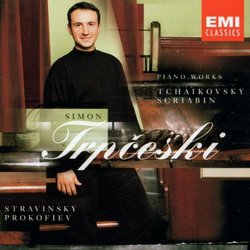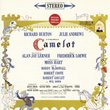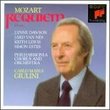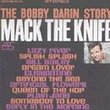| All Artists: Sergey Prokofiev, Alexander Scriabin, Igor Stravinsky, Pyotr Il'yich Tchaikovsky, Simon Trpceski Title: Simon Trpceski Plays Tchaikovsky, Scriabin, Stravinsky, Prokofiev Members Wishing: 1 Total Copies: 0 Label: Angel Records Release Date: 1/29/2003 Album Type: Import Genre: Classical Styles: Ballets & Dances, Ballets, Chamber Music, Forms & Genres, Sonatas, Suites, Historical Periods, Classical (c.1770-1830), Modern, 20th, & 21st Century Number of Discs: 1 SwapaCD Credits: 1 UPC: 724357520225 |
Search - Sergey Prokofiev, Alexander Scriabin, Igor Stravinsky :: Simon Trpceski Plays Tchaikovsky, Scriabin, Stravinsky, Prokofiev
 | Sergey Prokofiev, Alexander Scriabin, Igor Stravinsky Simon Trpceski Plays Tchaikovsky, Scriabin, Stravinsky, Prokofiev Genre: Classical
|
Larger Image |
CD DetailsSimilarly Requested CDs
|
CD ReviewsA Broader Spectrum of Simon Trpceski's Repertoire Grady Harp | Los Angeles, CA United States | 04/27/2008 (5 out of 5 stars) "Though this very affordable EMI Classics CD was released in 2002, it is happily current sounding and an exciting introduction to the amazingly gifted Macedonian pianist Simon Trpceski. For those fortunate enough to hear him in live performance, either as a recitalist or as a soloist in concertos with orchestras around the world, this collection of works will serve as a reminder of just how intensely musical and electrifying this young pianist is. But for those who have yet to experience the wonders created between Trpceski and his instrument, this well programmed CD is as fine an introduction to a new artist as has been created by the EMI Debut Series. The recital opens with Tchaikovsky's own concert suite of music from 'The Nutcracker', with four movements as further enhanced for the piano by Mikhail Pletnev. Here Trpceski shines in his ability to make particular instrumental sections sound like the original instrumentation (for example, the Chinese Dance). His playing is richly romantic and finds more of the inner voices of the score than most other pianists. Subtlety + drama seem to be one of this pianist's fortés. Turning to the Piano Sonata No.5 by Scriabin, a brief but elegant 'excerpt' from the inspirations for his 'Poem of Ecstasy', Trypceski finds the balance between the inherent eroticism of the music and the theme development that make this among the more exceptional of the ten sonatas Scriabin wrote. Moving back to the 'transcription of orchestral works' territory, Trpceski performs Stravinsky's own piano versions of three movements from the 'Petrouchka' ballet. What happens with the music themes so well known to audiences from the orchestral version is a sense of fresh concepts and the ability to hear Stravinsky's ideas as though for the first time. The moods and excitement of the drama are all very much in place, but in addition to this the keyboard technique is so secure and pristine that one only wishes for more of this version of the score. For this listener the highlight of the CD is the Prokofiev Piano Sonata No. 6, a work that contains all the elements that make Prokofiev's music so consistently exciting. There are soaring melodies as well as playful fast movements that suggest the score of 'Romeo and Juliet', and the overall effect is a work of great beauty and excitement - a perfect sonata - and Simon Trpceski plays it with complete control and romantic abandon. This is a young giant of a pianist about whom we will surely hear much, much more. Highly recommended for all lovers of classical music. Grady Harp, April 08" Bravo! Long Live Trpceski! mrcatbert | 01/03/2004 (5 out of 5 stars) "I first had the privilege of listening to this recording by Simon Trpceski in December 2002, and I have been listening to it ever since. This is the sort of recording that you can listen to many times and find something new and wonderful each time. I have already inducted it into my personal pantheon of exceptional recordings, and it ranks with such legendary recordings as Horowitz's 1986 Moscow recital, Gieseking's performances of Debussy's piano music, and Richter's sublime Schubert from the 1970s, to mention but a few.Trpceski was born in 1979 in Skopje, Macedonia, and has won many international competitions. This is his first disc, and it has deservedly garnered many awards, including Gramophone's "Editor's Choice of the Year" award for 2003 and BBC Music magazine's "Disc of the Month" award. The disc starts off with Mikhail Pletnev's piano transcription of seven movements from Tchaikovsky's popular ballet The Nutcracker. I unfortunately have not heard Pletnev's own recording of his transcriptions, but with all due respect to Pletnev's impressive playing, I cannot imagine a better recording than Trpceski's. Pletnev's transcriptions of the nutcracker are certainly spectacular, but it is not just Trpceski's virtuosity that makes this recording so special. What makes this recording wonderful is the fact that Trpceski plays with incredible passion. The "Pas de deux" is the most incredibly powerful recording of any piece of music I have ever heard - while I am not an overly sentimental person, I cry every time I listen to it. When I hear this track I often think of Joseph Campbell's quote that in life we "participate joyfully in the sorrows of the world," for Trpceski plays the piece with life affirming joy, while also acknowledging the more poignant undertones so that we can truly appreciate the brighter side of the music. The next item on this recording is Alexander Scriabin's Fifth Sonata. It is an excellent recording, and I think that it compares favorably to Horowitz's 1976 recording, which is often cited as the benchmark. Horowitz's recording is considerably slower than Trpceski's (Horowitz plays the sonata in slightly over twelve minutes, while Trpceski clocks in at slightly under eleven minutes), and to my ear Horowitz gives a more fiery, heavy performance than Trpceski, who tends to be more lyrical and soft. I would not like to choose between the two versions, for each of them has something special to offer. The ballet "Petrushka" is my favorite work by Stravinsky, and I am constantly delighted by the composer's own piano transcription. I once read that Artur Rubinstein, who commissioned the transcription, pronounced it unplayable, and as a pianist myself I can imagine the difficulty of the piece. Trpceski, however, has no problems handling its massive technical challenges. Yet while I cannot help but be amazed at Trpceski's technical feats, what really holds my attention is his musicality. According to the informative CD booklet, Stravinsky wanted the three movement transcription to be seen as a work in its own right, rather than just "mere" transcription, and Trpceski clearly realizes this. I hesitate to compare the transcription to the orchestral original, but since I have not had the opportunity to hear another recording of the piano transcription, I must say that Trpceski's recording complements Stravinsky's own recording of the orchestral original. Prokofiev's sixth sonata rounds off this generous disc (the total time of the disc is 72:42). When I first got this disc I did not listen to the Prokofiev sonata as often as the other pieces, but since then I have come to cherish it. Hearing Trpceski's recording made me begin to understand this piece for the first time. I had previously listened to recordings by Evgeny Kissin and Sviatoslav Richter, both of whom are legendary for their interpretations of this piece. However, for me their recordings, while excellent, simply don't compare to Trpceski's. His performance never sounds harsh or acidic, and yet it avoids the other extreme of bleakness and bland dissonance. Before listening to Trpceski's recording, I had never understood or appreciated the two inner movements of the sonata, and I only appreciated the fast movements for their technical difficulties. However, Trpceski succeeds in making this music very human. It is at once both tragic and compassionate, and it is certainly my benchmark for this piece.This recording was made at EMI's legendary Abbey Road Studios, and the sound quality is up to today's usual high standards. On the basis of this recording (and the odd radio broadcast that I have been lucky enough to hear) I think it is fair to say that Simon Trpceski is already one of the "great" pianists. I will be looking for any future CDs that he makes, and, while I do not attend concerts often, I will certainly go out of my way to see Mr. Trpceski perform. He is one of those rare musicians who has awesome technical abilities combined with an obvious love of music, and it is, very simply, a joy to listen to him." Trpceski vs. Pletnev Frank Hamilton | New York, New York | 04/21/2005 (5 out of 5 stars) "Regarding the Tchaikovsky transcription by Pletnev, performed
here by Trpceski and on a Philips CD by Pletnev himself, I can only say, there is no comparison, the performance by Trpceski is a miracle, while Pletnev is pedestrian at best. The Pletnev was recorded about 27 years ago and the engineering of the recorded sound was terrible. The piano used in the Pletnev was out-of-tune and otherwise still not a great instrument, while Trpceski's piano on this EMI recording is almost unique in its beauty and balance. EMI's engineering is superb. Given the differences in the engineering and instruments, it is hard to make a fair comparison of the two pianists. I bought the Pletnev recording only because of the previous Amazon review, and very much regret that I did. I found it a tremendous disappointment. Pletnev's transcription is wonderful, but his interpretation leaves much to be desired. The sensitive phrasing and delicate touches found in Trpceski's, are tossed off and go for nothing in that particular Pletnev recording, not to mention Pletnev's fumbled notes." |

 Track Listings (15) - Disc #1
Track Listings (15) - Disc #1







